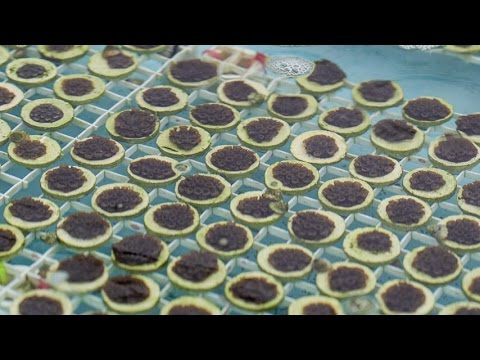We’re always hearing terrible stories of “bleaching” of the world’s coral reefs. Mostly the stories are full of doom and gloom and suggest the reefs will never recover. In fact, they do, and the Great Barrier Reef off Australia’s East coast is no exception.
Scientists from the Australian Institute of Marine Science this month (Sept 2017) surveyed 14 coral reefs between Cairns and Townsville to see how they fared after being bleached.
The institute’s Neil Cantin said they were surprised to find the coral had already started to reproduce.
But in case Mother Nature needs a hand, there’s this amazing technique coming out of the Mote Tropical Research Laboratory in Summerland Key, Florida.
David Vaughan works on the Florida Reef Tract, the third largest coral reef in the world and a vastly important ecosystem for sustaining underwater life. He and a team of scientists are working to combat the loss of 25 to 40 percent of the world’s corals in recent decades. Vaughan has developed a technique called “microfragmenting” that allows corals to grow more than 25 times faster than normal, which could rapidly restore the dwindling population of healthy coral reefs.
